Iran is embarking on a new struggle for influence against Turkey in Iraq, a new adversary in a country where Tehran has previously battled American influence and is now contending with encroachment rivals closer to home.
The two neighbours are battling to exert their influence over the plains of Nineveh and the province’s capital city of Mosul, which only now has begun to emerge from the ruins of a war that destroyed much of the city.
In this newest battleground fought out on Iraqi terrain, both sides can count upon their own political and military instruments to wage their campaign for supremacy, even tapping into groundswells of popular support. Until its occupation by ISIS in June 2014, Turkish influence had predominated in the province – practically constituting the sole power in the area.
But since Mosul’s liberation from ISIS however, everything has changed.
Ten months before the launch of military operations to liberate Nineveh province from ISIS rule, the Turkish military expanded a camp it occupied in neighboring Bashiqa, inhabited by a mixture of Iraqi Christians, Yazidis, Shabaks, and some Muslims.
Indeed, as Hisham al-Hashimi – a researcher in security affairs – highlights to Raseef22.
Turkish forces have been present in the Bashiqa camp on-and-off since 1996 as part of an agreement reached with former Iraqi president Saddam Hussein. However, Turkey’s presence in the region became more fixed in 2015, after ISIS assumed control of Mosul.
Turkey’s regularised presence in Bashiqa would subsequently become the subject of controversy in Iraqi political discourse, prompting former Turkish Prime Minister Ahmet Davutoğlu to declare: “It was the Iraqi government that invited us to Bashiqa. Please excuse us. We will not withdraw. There are people of our flesh asking us for help.”
Since the expulsion of ISIS however, it is Iran, with no footprint of note in the area before 2014, which has become the dominant player in Nineveh today. Iraq’s eastern neighbour has played a major role in altering the political and security trajectories of the province, while demonstrating its ability to mobilise public opinion at key points.
On the other hand, Mosul remains at the heart of neo-Ottoman revivalist projects, having constituted its own province under the empire many decades ago. Referring to Mosul in 2016, Turkish president Recep Tayyip Erdoğan declared: “This geography we speak of is now part of our soul. Even it if it is heavy on our hearts, we respect the geographical borders of every state.”
Nonetheless, President Erdoğan called the same year for the modification of the 1923 Treaty of Lausanne, which established the borders of modern Turkey. His then-statement coincided with reports in Turkish media that the country had preserved more than 77,000 original property and title deeds for the regions of Kirkuk and Mosul, dating back to the Ottoman period.
Tel Afar… Between Tehran and Ankara
Iran has been working to establish a ‘land-corridor’ in recent years linking it to Syria via Iraq, and by extension to the Mediterranean Sea. Iran’s ‘Mediterranean road’ must pass through Nineveh, which borders Syria’s east, and specifically the city of Tel Afar, which is inhabited by a majority of Shia Turkmen.
It is the ethno-sectarian blend which defines this community which has placed it between a rock and a hard place. As Turkmen, their national roots are invariably tied to Turkey, whereas as Shias, their doctrinal affiliation is closer to Iran.
During the campaign to recapture Tel Afar from ISIS, Turkey voiced its opposition to the entry of the Popular Mobilisation Forces (PMF – also known as Popular Mobilisation Units or PMUs) – a state-sanctioned, Shia-dominated paramilitary coalition, which was eventually incorporated into the Iraqi military in 2016.
In November 2016, a few months before the start of the offensive, the official spokesman of the Turkish Presidency Ibrahim Kalin warned: “The entry of the Shia militias alone into Tel Afar will push the city’s inhabitants to seek protection in Daesh [ISIS], because its entry will lead to a sectarian conflict and this is what Daesh wants.”
“Turkey and Iran are counting on winning the contest in Mosul, especially that they consider it a strategic area with its roads, as well as being a rich region, and so they are more competitive over the governance and resources of the north-western areas of Nineveh,” Iraqi expert Hisham al-Hashimi told Raseef22. “Turkey looks at this geographical expanse as an area with an economic and security dimension, and Iran looks at it as one of the ways to export its revolution in the direction of what is known as the Tehran-Beirut road.”
The face of the struggle on the ground
Since before 2014, Turkey has relied on the notable al-Nujaifi family, which includes the likes of former Nineveh governor, Atheel al-Nujaifi, as well as his brother and current Vice-President of Iraq, Osama al-Nujaifi, to extend its sway in Nineveh. Meanwhile, it is said that Iran pushed the governorship of Nawfal al-Akoub, who has since been removed from his post.
Al-Akoub was dismissed following the recent ferry sinking in Mosul, which claimed more than 100 lives. Iraqi Prime Minister Adel Abdul Mahdi had asked parliament to remove al-Akoub from his post, which it subsequently did, along with his two deputies, in a unanimous vote on March 24. The body cited al-Akoub’s “clear negligence and dereliction of duty and responsibility” and accused the former governor of corruption, claiming “the existence of evidence following investigations which prove the squandering of public money and exploitation of public office.”
Iran has strongly intervened in the aftermath of al-Akoub’s dismissal, pushing for his replacement by one of its allies. Its most prominent candidate is MP Mansour Mareed, a member of the ‘Ataa Movement’ – a parliamentary coalition founded by the head of the Popular Mobilisation Forces (PMF) and former National Security Advisor, Falih Alfayyadh, who is considered close to Iran.
Ali Aghwan, a professor of International Relations at Erbil’s Bayan University and an activist from Mosul, told Raseef22: “Despite the struggle and competition over the post, Mareed is currently the most prominent candidate, which can indicate that Iran is pushing in the direction of adopting him.”
However, Iran does not rely on any single figure in its Iraqi policy, even if they were occupants of the highest provincial post, but instead counts upon the wide influence of its allies in the PMF, which gained significant stature following its victories against ISIS.
PMF militias continue to be present in several areas of Nineveh, despite numerous calls for their expulsion. The PMF presence has engendered broad changes in the power dynamics in the province, with Sunni influence no longer holding the same weight it once had, despite the majority of the region’s population being Sunni.
To counterbalance the PMF, Atheel al-Nujaifi, one of the principal figures accused of responsibility for the fall of Mosul, heads the ‘National Mobilisation Forces’ – a group composed of Nineveh citizens and which claims to include 60,000 fighters. The force has received training at the hands of the Turkish military and reportedly receives its salaries from Ankara. The ‘National Mobilisation’ has intermittently been part of a media war with the ‘Popular Mobilisation’ regarding control of the province.
According to Hossam al-Abbar, a member of the Nineveh provincial council: “What Nineveh possesses from geographical advantages and natural resources sparks an international and local struggle, and one of these struggles is the Turkish-Iranian one, and Iraqi political actors are attempting to accrue influence in the province.”
One of the indicators of this struggle, al-Abbar told Raseef22, is the “continuous call to convert the Nineveh plain, Sinjar and Tel Afar from subdistricts into governorates,” which would allow international actors like Tehran and Ankara to exert greater influence.
“The Turkish-Iranian struggle has been present since before 2014 but expanded when Daesh took control of Mosul, and has intensified with the liberation operations and demographic change that has happened, reaching the point whereby the talk of a struggle between the two countries has become outwardly professed,” said Wathaq al-Hashimi, the head of Al-Nahrain Center for Strategic Studies in Iraq.
According to al-Hashimi, Iran began imposing its power in Mosul through supporting armed groups and backing politicians, while Turkey drew on its preexisting networks.
But he said the increased power of Kurdish forces in the region was transforming the dynamics on the ground.
“The Kurdish opposition to both countries is present in this geographical space,” he said. “So they want to possess the area with security and military means to eliminate them.”
This has sometimes brought the two sides together in a shared desire to curb the influence of Turkish and Iranian Kurds operating in northern Iraq, ultimately aiming to deal a decisive blow to Kurdish aspirations for independence. The intersection of these interests was notably on display during the 2017 Kurdish Independence Referendum held in the Kurdistan Regional Government (KRG) of Northern Iraq, which was opposed by both Turkey and Iran.
Nevertheless, Iran has also often supported members of the Kurdistan Workers’ Party (PKK) present in northern Iraq – a group designated by Turkey as a terrorist organisation – in order to prevent certain areas falling in the hands of Turkish allies in the region.
Raseef22 is a not for profit entity. Our focus is on quality journalism. Every contribution to the NasRaseef membership goes directly towards journalism production. We stand independent, not accepting corporate sponsorships, sponsored content or political funding.
Support our mission to keep Raseef22 available to all readers by clicking here!
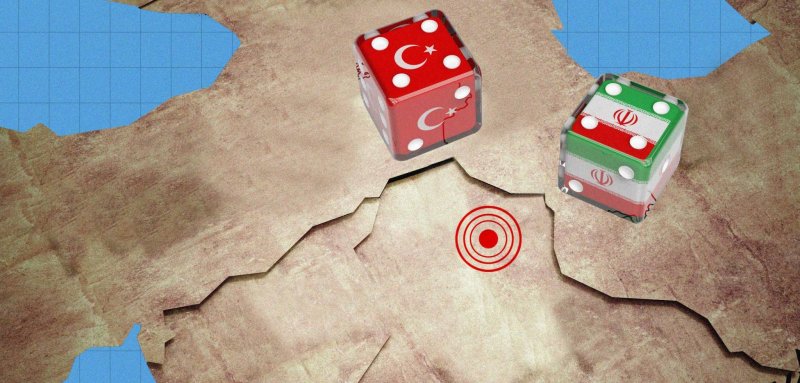
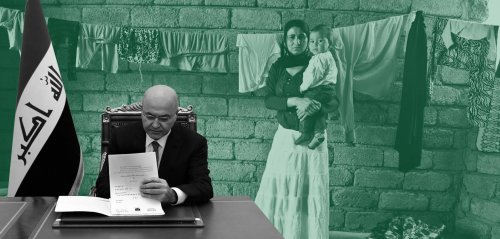
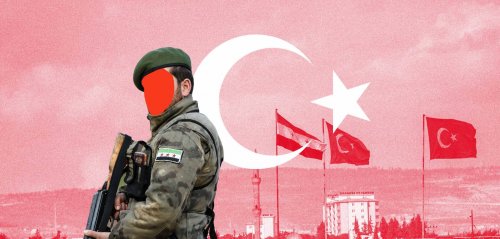
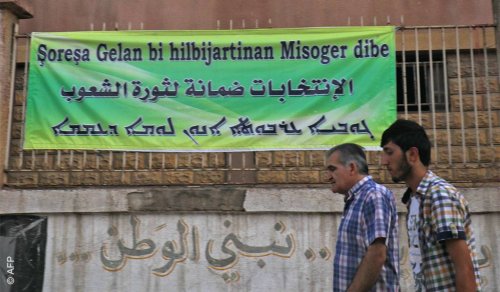
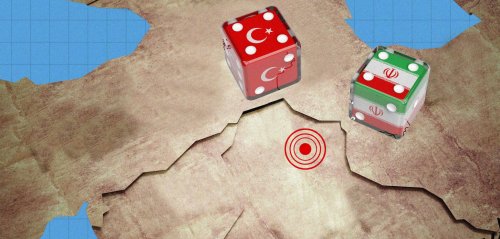




Join the Conversation
Tester WhiteBeard -
8 hours agoEgypt
Tester WhiteBeard -
8 hours agoGreat
Ayar Abdelkreem -
1 day agoكانت مكتوبة مقال رأي وتم رفضه من رئيسة التحرير،
Ayar Abdelkreem -
1 day agoكانت فكرتي
Samah Al Jundi-Pfaff -
1 day agoأرسل لك بعضا من الألفة من مدينة ألمانية صغيرة... تابعي الكتابة ونشر الألفة
Samah Al Jundi-Pfaff -
1 day agoاللاذقية وأسرارها وقصصها .... هل من مزيد؟ بالانتظار